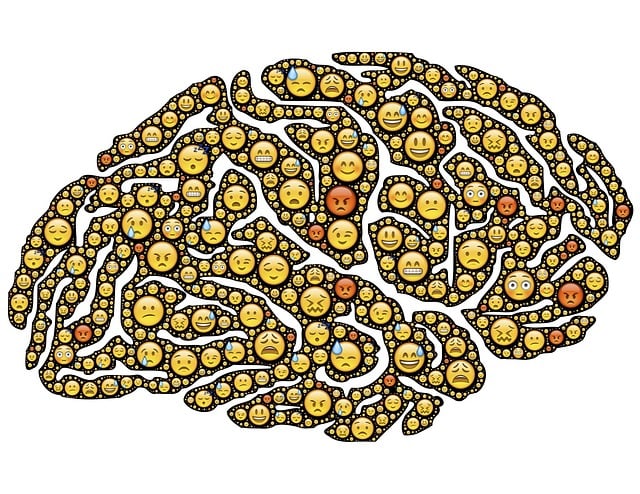Loss, grief, and bereavement significantly impact mental wellness, making Denver Interpersonal Issues Therapy crucial for healing. This therapy addresses complex emotions post-loss, aids in developing coping skills, and establishes self-care routines. The Mental Wellness Podcast Series offers guidance during this challenging time. Skilled therapists use empathy and communication techniques to help individuals process grief, rebuild relationships, and integrate past experiences into their emotional healing processes. By fostering understanding and expression of emotional needs, Denver Interpersonal Issues Therapy empowers clients to navigate grief, prevent loneliness and depression, and gradually re-engage with social environments for lasting recovery.
Loss, grief, and bereavement can profoundly impact individuals, leaving them to navigate complex interpersonal issues. This article provides a comprehensive guide to understanding these processes and offers insights into the transformative power of counseling. We explore Denver’s approach to interpersonal therapy for grief support, highlighting its effectiveness in addressing interpersonal challenges after loss. Additionally, we delve into common coping strategies and offer resources for continuous emotional healing.
- Understanding Loss, Grief, and Bereavement: An Overview
- The Role of Counseling in Navigating Interpersonal Issues After Loss
- Denver's Approach to Interpersonal Therapy for Grief Support
- Common Challenges in Grieving Individuals and Effective Coping Strategies
- Finding Hope and Healing: Resources for Continuous Support
Understanding Loss, Grief, and Bereavement: An Overview

Loss, grief, and bereavement are complex and deeply personal experiences that can significantly impact an individual’s mental wellness. Understanding these processes is crucial for anyone seeking Denver interpersonal issues therapy or support during difficult times. Loss refers to the absence of something valued, whether it’s a loved one, a relationship, or even a life stage. Grief is the emotional response to loss, characterized by feelings of sadness, anger, confusion, and loneliness. It’s not simply about crying; it’s a multifaceted process that involves recognizing and accepting the reality of the loss while navigating the myriad emotions that arise.
Bereavement, on the other hand, refers to the period after a significant loss when individuals work through their grief and adjust to life without the person or thing they’ve lost. This phase can last for months or even years, varying from person to person. Coping skills development is essential during this time, as it enables individuals to manage their emotions effectively and maintain a sense of balance in their lives. Self-care routine development for better mental health plays a vital role in the bereavement process, helping individuals nurture themselves both physically and emotionally as they navigate their grief. Many find solace in the Mental Wellness Podcast Series Production, which offers guidance, support, and shared experiences to help them cope and heal.
The Role of Counseling in Navigating Interpersonal Issues After Loss

After a significant loss, individuals often face complex interpersonal issues that require specialized support to navigate. Denver interpersonal issues therapy plays a pivotal role in helping people process their grief and rebuild their social connections. This form of counseling provides a safe space for clients to explore and express their feelings, fostering an environment conducive to healing. Therapists skilled in empathy building strategies aid individuals in understanding and managing their emotions, enabling them to approach relationships with renewed self-awareness.
Through effective communication strategies, counselors assist the bereaved in conveying their needs and boundaries, facilitating healthier interactions. Self-awareness exercises are integrated into sessions to help clients recognize patterns of behavior and thought that might have been influenced by their loss. By delving into these interpersonal dynamics, Denver interpersonal issues therapy empowers individuals to heal, adapt, and rediscover meaningful connections in their lives.
Denver's Approach to Interpersonal Therapy for Grief Support

In addressing loss, grief, and bereavement, Denver’s approach to Interpersonal Issues Therapy offers a unique and compassionate framework for healing. This therapeutic method prioritizes the individual’s relationships and social context as integral components of emotional healing processes. By exploring interpersonal dynamics, clients can better understand how their interactions with others—both past and present—influence their ability to process grief and navigate life without their loved one.
Denver’s Interpersonal Therapy goes beyond surface-level support by delving into the intricate web of social connections, identifying any existing trauma within these relationships, and integrating Trauma Support Services. This holistic approach acknowledges that emotional healing processes are often intricately linked to past experiences and current interpersonal interactions, thereby fostering mental wellness for a more complete and lasting recovery.
Common Challenges in Grieving Individuals and Effective Coping Strategies

Grieving individuals often face several common challenges that can complicate their journey through loss and bereavement. One significant hurdle is the tendency to isolate themselves from social interactions, which can exacerbate feelings of loneliness and depression. This withdrawal may stem from a belief that no one can understand their pain or a desire to avoid painful emotions associated with memories of the lost individual. However, maintaining connections and engaging in compassionate cultivation practices like Denver interpersonal issues therapy are effective coping strategies.
Effective counseling sessions focus on enhancing communication strategies, fostering understanding, and building confidence in expressing emotional needs. Through these therapeutic approaches, individuals learn valuable techniques to navigate their grief, develop healthy coping mechanisms, and gradually re-engage with social environments. Compassion cultivation practices not only help in processing emotions but also foster a sense of belonging and support, ultimately aiding in the healing process.
Finding Hope and Healing: Resources for Continuous Support

Grief is a complex and deeply personal journey, but finding hope and healing after loss is possible with the right support. For many individuals navigating interpersonal issues in Denver or beyond, professional counseling can be a game-changer. Therapists specializing in bereavement offer valuable resources for continuous emotional healing processes. Through individual or group therapy sessions, clients learn coping strategies to manage intense emotions associated with grief and find healthy ways to process their loss.
These specialized therapists help individuals understand that burnout prevention is an essential aspect of self-care during such challenging times. By integrating burnout prevention strategies for healthcare providers and others in high-stress fields, counseling can empower people to maintain resilience and avoid emotional exhaustion. This holistic approach ensures that those dealing with grief receive comprehensive support tailored to their unique needs, fostering a sense of hope and restoration.
Loss, grief, and bereavement can profoundly impact individuals, often leading to complex interpersonal issues. This article has explored these topics, highlighting the importance of counseling as a powerful tool for healing. Denver’s approach to interpersonal therapy, focusing on grief support, offers a specialized method to navigate these challenges. By understanding common coping strategies and utilizing available resources, individuals can find hope and continuous support during their journey of healing from loss. For those seeking Denver Interpersonal Issues Therapy, professional guidance is accessible, ensuring a more manageable path through the intricate landscape of grief.














